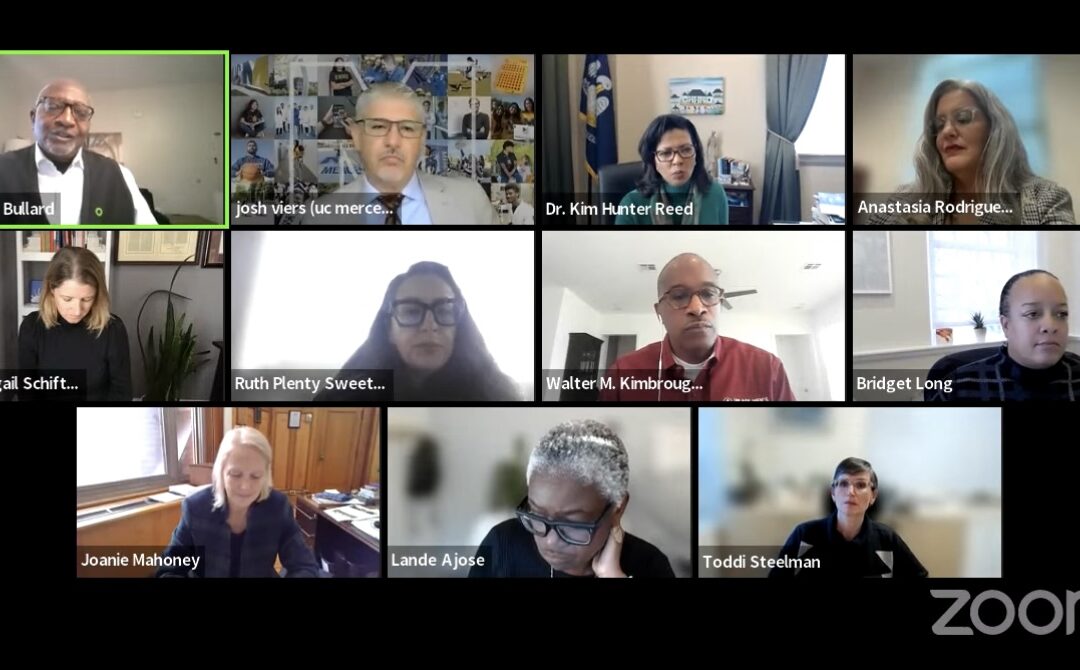By: Alli Sweigard, VISTA F3 Communications Coordinator
In the dynamic landscape of higher education’s fight against climate change, Dr. Joshua Viers, Director of VISTA at the University of California, Merced, unveiled initiatives during the Higher Ed Climate Action Task Force Listening Session on Nov. 2, 2023. This virtual gathering was an exploration into the pivotal role played by Minority-Serving Institutions (MSIs) and community partnerships in the climate change battleground.
The session is available through a recording on YouTube, ensuring that the valuable insights and initiatives discussed can reach a broader audience interested in addressing climate change through education and community engagement. Listen here: Higher Ed Listening Session V – This Is Planet Ed [https://www.thisisplaneted.org/blog/higher-ed-listening-session-v] At the forefront of this environmental crusade, UC Merced, recognized as a Hispanic-serving institute (HSI), is carving a unique path to drive climate action. The university has developed unique programs designed to serve the 65% who are first generation college students and 58.5% who are Pell Grant eligible. CITRIS through the NexTech Robotics and FLY drones’ education programs. When asked about the policies, practices, and academic programs that UC Merced has implemented to foster sustainability, Dr. Viers emphasized the significance of access. “First and foremost, access becomes important,” he said, “At UC Merced, given that most of our region is underserved and undereducated, how do we improve access to education?”
Another highlight of Dr. Viers’ presentation was the UC Merced Experimental Smart Farm, spanning 40 acres. This unique project serves as an experimental hub for sustainable agriculture, allowing the university to engage the local community in environmental practices.
These programs offer a gateway to engage in meaningful projects and contribute to their community. Dr. Viers’ insights were part of a broader discussion that included distinguished speakers such as, Dr. Robert Bullard, professor of urban planning and environmental policy and founding director of the Bullard Center for Environmental and Climate Justice at Texas Southern University, Dr. Ruth Plenty Sweetgrass-She Kills, Food Sovereignty Director at Nueta Hidatsa Sahnish College, and Anastasia Rodriguez, Vice President for Administration and Finance at the University of Maryland Eastern Shore. The panel was facilitated by Dr. Kim Hunter Reed, Commissioner of Higher Education for Louisiana and Chancellor of the California State University system, Dr. Mildred García. The dialogue revolved around how institutions can leverage their unique positions to lead the transition towards a clean economy and a sustainable society.
This conversation highlighted the critical role of collaboration between educational institutions and their communities in promoting climate solutions. By addressing the disproportionate impacts of climate change on historically marginalized populations, these partnerships are making meaningful strides toward a more sustainable future.

